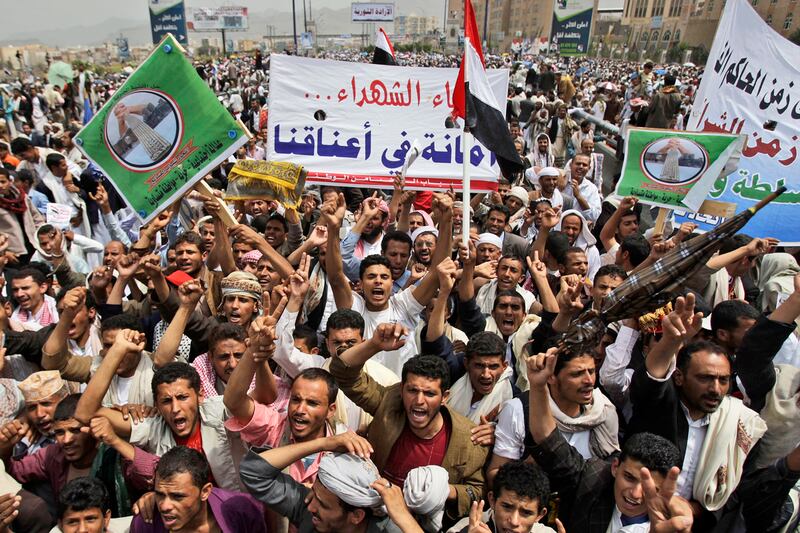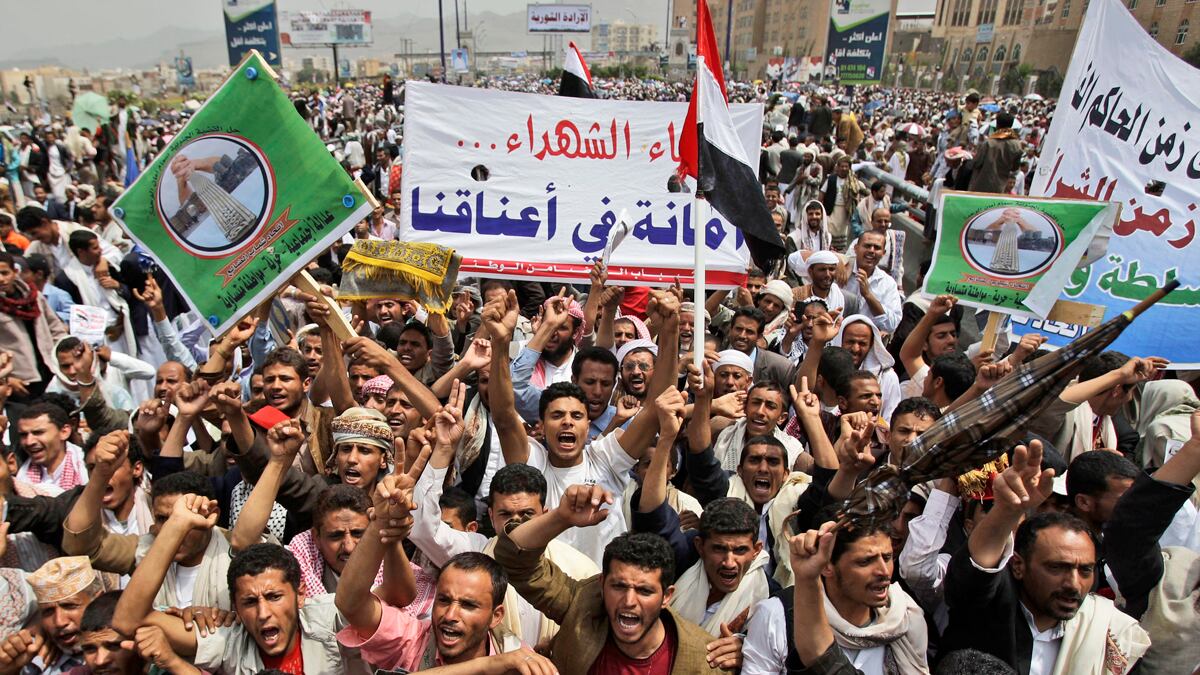Al Qaeda has had a bad year so far, with the death of Osama bin Laden and the drone attacks that have killed many of its operatives. But as usual, it is premature to count the terror group out--especially in Yemen, where it is making major gains. Yemen’s future looks grim, and there is not much outsiders can do to help.
The country is gradually descending into full-scale chaos. President Ali Abdullah Saleh always had only a precarious hold on power. His injuries in an explosion this month (the exact cause is still unclear) and departure to Saudi Arabia for medical treatment have left his sons and other relatives hanging on to power in the capital, Sanaa, as the rest of the country becomes more and more atomized. In the north, the Zaidi Shia Houthi rebellion, which has been a chronic problem for a decade, has resumed again. In the center, the battle for Sanaa and other cities is a complex struggle between Saleh’s heirs, a democratic movement that is trying to recreate the Egyptian model of change and a collection of warlords and tribal chiefs who say they want change, but probably just want to keep their equities.
In the south and east, there is growing evidence that Islamic militants, some tied to al Qaeda, are emerging as the power brokers. They have taken over several small cities and seem to run rampant in the hinterlands. Saleh may have indirectly helped them by drawing troops away from the area and unleashing the militants to create an al Qaeda bogeyman to get help from the outside. Nonetheless in Osama bin Laden’s ancestral home governorate, Hadramawt, and several other governorates like Abyan, Shabwah, and al Jawf, extremists seem to be gaining the upper hand.

Al Qaeda in the Arabian Peninsula is a beneficiary of the chaos, even if it doesn’t control all or even most of what is going on. The terror cell thrives amid the confusion surrounding it. The central state is evaporating as the political struggle to replace Saleh goes on without solution. Washington and Riyadh have been pressing for a political endgame for weeks in Sanaa. But they don’t have the power on the street to make it happen.
Yemen’s problems are perhaps too deep and developed to be resolved. The forced union of north and south that Saleh engineered in 1990 has never been popular in the south. The country is literally running out of oil and water. Unemployment is enormous and population growth is staggering; the 24 million Yemenis today will double by 2025. Already half of Yemeni children suffer from malnutrition.
AQAP is led by a group of Yemeni and Saudi fanatics determined to take up bin Laden’s legacy of attacking America. Already they have twice tried to strike our heartland, Detroit and Chicago, with bombs on jets. The New Mexico-born AQAP ideologue Anwar al Awlaki is convinced that relatively small attacks on America can “hemorrhage” an already weak economy, sparking another meltdown; he predicts the entire Middle East is heading toward “war on a colossal scale” as the Arab spring turns to a struggle for power between America, Iran, Israel, and the new Arab awakening. He openly wants to give a push to help regional war come faster.
Yemen does not pose the strategic nightmare that Pakistan does, armed as it is with nuclear weapons and a melange of different terror groups. But it is the Achilles' heel of the Arabian Peninsula. A stronger AQAP not only threatens our homeland; it threatens the stability of the Gulf Arab monarchies, already feeling the heat of the Arab spring. But the kings and emirs of the Gulf can only rent Yemeni politicians, they can't cure the countries ills even with all their riyals. The future looks grim for everyone but al Qaeda in Yemen.





